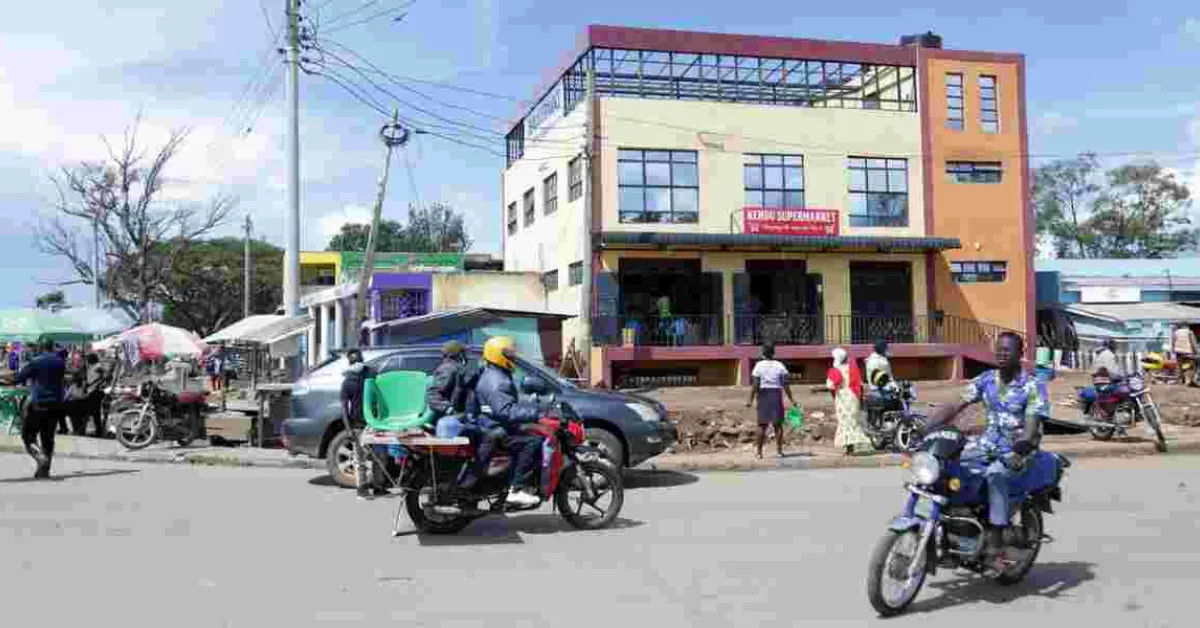Kendu Bay Town Welcomes First Bank Branch After Century of Waiting

Kendu Bay, a historic trading centre in Homa Bay County, is set to undergo an economic transition with the upcoming opening of the first bank branch in the town, Kenya Commercial Bank (KCB).
The grand opening, scheduled for Monday, marks a critical milestone in a community long characterized by its lack of banking institutions, a situation that has persisted for decades and contributed to various local economic challenges. Founded over a century ago, Kendu Bay served as a bustling hub for Arab traders during the late 19th and early 20th centuries, leveraging its access to the railway from Mombasa and Lake Victoria to flourish as a commercial centre in South Nyanza.
However, the decline of water transport systems in the 1980s precipitated a downturn, leading to a mass exodus as residents sought better economic opportunities. This migration allowed neighbouring towns like Oyugis to thrive, as they attracted financial institutions and diversified business ventures. The announcement of KCB’s entry into Kendu Bay has reignited hopes for economic revival among residents and local business owners, who view the establishment of a bank as a recognition of the town's untapped potential.
In a letter to Karachuonyo MP Adipo Okuome, KCB Managing Director Annastacia Kimtai emphasizes the growing commercial significance of Kendu Bay and the bank’s commitment to fostering this development. A June 2024 report from the Central Bank of Kenya highlights a national increase in the number of bank branches, rising from 1,475 in 2022 to 1,511 in 2023. This expansion is particularly notable for Kendu Bay, a town that has historically lacked such financial services.
Rose Ouso, the vice-chairperson of the Homa Bay Kenya National Chamber of Commerce and Industry (KNCCI), outlines the detrimental impacts of the town’s banking deficit. Traders currently travel over 30 kilometres to reach banks in Oyugis or Homa Bay Town, incurring logistical challenges that stifle local business growth and contribute to higher crime rates as they transport significant cash sums without secure banking options. The introduction of KCB is expected to address these issues by providing a secure venue for deposits and enhanced financial services, including loans that will enable small-scale traders to expand operations.
Nuhu Masud, secretary of the Supreme Council of Kenya Muslims, highlights the reliance on exploitative financial services in the absence of banks, including high-interest loans from unregulated lenders. He points out that routine transactions, such as posting bail, often necessitate inconvenient trips to remote bank locations. The opening of KCB in Kendu Bay indicates a potential shift away from predatory lending with hopes that it will attract other financial institutions to the area. This could broaden banking options and offer more favourable loan terms to residents.
The community has faced significant challenges from informal money lenders, known as Shylocks, who often demand household items as collateral for small loans, leading to tragic consequences for traders unable to repay their debts. Market chairperson Charles Ouya recounts instances of devastating outcomes, including suicides and the abandonment of businesses. Local fish trader Sarah Adhiambo expresses frustration with the existing credit services, which disproportionately favour lenders and result in burdensome debt for traders due to exorbitant interest rates.
The presence of KCB is anticipated to reduce these risks by providing secure savings and more reasonable loan options. Wholesale shop operators Fred Odhiambo and Mohamed Ibrahim have shared insights into the operational disruptions they experience due to frequent trips to Oyugis for banking, which expose them to the risk of robbery and financial losses. The establishment of KCB is expected to enhance both safety and operational efficiency for businesses in Kendu Bay.














Comments
As the karachuonyo…
Permalink
As the karachuonyo fraternity. We welcome this development
Add new comment